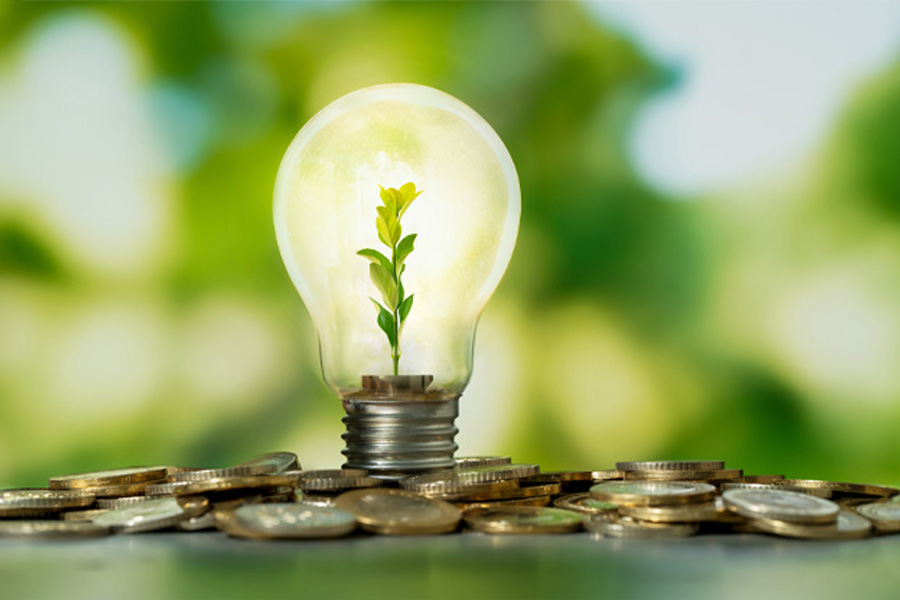
Published :
Updated :

Bangladesh is facing a looming electricity shortage this summer as demand is expected to rise from 9,000 megawatts in winter to as high as 18,000 megawatts. To mitigate the impact of this impending crisis, which threatens to severely affect household, commercial, and industrial users, the government has urged all organisations, institutions, and individuals to focus on more efficient use of electricity. As part of this, authorities have instructed that air conditioners be set no lower than 25 degrees Celsius this summer. The Energy Adviser went as far as to warn of disconnecting power lines for non-compliance with the directive, but it appears to have met with widespread skepticism. While the government's intention is to save energy, many consider it an interference in their freedom and lifestyle choices. Clearly, enforcing such a directive would be a challenging task without consumer cooperation.
Air conditioner temperatures do matter in saving energy, even if it is a minor adjustment. Studies conducted by India's Bureau of Energy Efficiency have shown that increasing the thermostat by a mere 1 degree Celsius can result in approximately 6 per cent energy savings. When individual actions are aggregated, they can significantly impact overall energy consumption. It only requires simple behavioural adjustments. This strategy has been employed by numerous countries, including India, the USA, and Japan. In India, the government mandates a 24°C default temperature setting for air conditioner manufacturers. This policy serves a dual purpose: conserving energy and promoting public health. The rationale behind this decision lies in the understanding that excessively low indoor temperatures can lead to health issues, particularly respiratory problems. By setting a default temperature, the government encourages a balance between thermal comfort and energy conservation.
The "Shut the Front Door!" social media campaign, launched by New York City's Department of Consumer Affairs in 2015, exemplifies a targeted approach to curbing wasteful air conditioner usage. Meanwhile, the Japanese government encourages offices to set air conditioner temperatures to 28°C during the summer as part of its Cool Biz campaign. The campaign was introduced to reduce electricity consumption and mitigate the environmental impact of air conditioning.
In Bangladesh, gone are the days when air conditioners were considered a luxury commodity. In recent years, due to rising temperatures and greater affordability of electric appliances, even middle- and lower-middle-income people are buying ACs. According to a study by the Institute of Planning and Development (IPD), Bangladesh has a total of 2.8 million installed air conditioning units. AC usage has been increasing by approximately 20 per cent annually. However, the growing use of ACs is further complicating the problem of urban heat.
While ACs cool indoor spaces, they also contribute to raising outdoor temperatures. A study by BUET found that Dhaka's temperature has risen by nearly six degrees in just 10 years due to the urban heat island (UHI) effect, a phenomenon where urban areas experience higher temperatures than surrounding rural areas due to heat-absorbing infrastructure, reduced vegetation, and increased human activities. The hotter it gets outside, the more people buy and use ACs, creating a vicious cycle. Amid all this, low-income people, who cannot afford one, suffer the most, while the environment remains the worst casualty. Meanwhile, as air conditioning units consume a significant portion of the country's electricity, farmers often struggle to operate their pumps to irrigate croplands due to load shedding. The stark contrast highlights a troubling irony.
Then again, the scope of energy-saving measures has not been fully utilised in the industrial sector either. A study by the Institute for Energy Economics and Financial Analysis (IEEFA) reveals that while the efficiency of gas-based captive generators in the industrial sector has improved, it remains at 35.38 per cent, despite the availability of gas generators with an efficiency of 45.2 per cent in the market. Additionally, around 44 per cent of the heat emitted from gas generators in industries remains unused for productive purposes. Upgrading to energy-efficient generators and maximising the use of waste heat within factories could reduce liquefied natural gas (LNG) imports by approximately US$460 million annually, assuming an LNG price of $9.5 per MMBTU, the study concludes.
Moreover, inefficiencies extend to other areas. In some industries, boilers are not maintained in time, leading to gas wastage. Domestic gas consumption also remains inefficient, with uncontrolled use for cooking.
In a country that depends on imported fossil fuels to produce electricity and where the government has been perpetually struggling to manage a ballooning energy subsidy, there must be a greater focus on sensitising people to the efficient use of energy. Despite a rise in energy-efficient LED lights and home appliances as cost-saving measures, excessive usage undermines potential energy savings.
So, there must be sustained awareness campaigns to promote energy efficiency and conservation to encourage the adoption of energy-efficient appliances and highlight the financial benefits of energy conservation. Clear energy efficiency standards and properly setting the default mode of appliances would empower consumers to make informed purchasing choices.
In the future, the price of electricity may be raised further to cover the subsidy in this sector. The government reportedly decided to raise the power sector subsidy from Tk 350 billion to Tk 620 billion-a 57.9 per cent increase-in the revised budget for FY25 in order to avoid a power tariff hike during a period of high inflation. However, it has stated that once inflation comes down to around 6.5 per cent, it will adjust the power tariff. Moreover, as part of the $4.7 billion loan agreement with the International Monetary Fund (IMF), Bangladesh has committed to phasing out subsidies in the energy sector by 2026, which will require further electricity price adjustments. The economical use of electricity, therefore, will benefit households, commercial establishments, industries, and the environment alike.
aktuhin.fexpress@gmail.com


 For all latest news, follow The Financial Express Google News channel.
For all latest news, follow The Financial Express Google News channel.